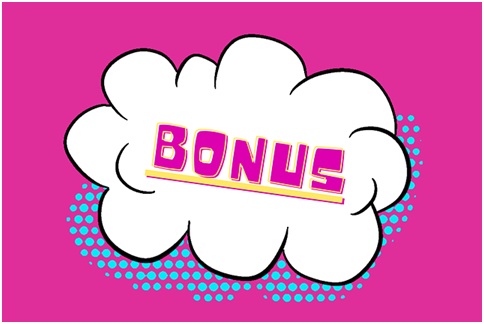The many credit card choices available make signing on a more complex process than merely opting for the favored one at the time. Instead, many variables include your eligibility, specifically creditworthiness, spending behavior, and desired features.
The volume of cards available allows for varied purposes, making your ideal card primarily about how you intend to use it. In following a basic selection process when trying to obtain the right kredittkort or credit card, you will be better prepared to make the best choice for your specific needs.
When looking for a credit card, it’s important to pre-qualify to gain insight into your eligibility for which cards. While these are not a guarantee of approval, they do offer guidelines to help point applicants in the right direction for cards most suited for their circumstances.
With a final approval, the card will be issued promptly, roughly ten business days from approval. With a rejection, applicants do have the opportunity to provide further details to a reconsideration line.
How To Start the Process of Selecting the Best Credit Card

When searching for the type of credit card that will work to fit your needs, lifestyle, and financial situation, you’ll need to consider several factors, including:
- Creditworthiness
- The card’s features and how you intend to use it
- Compare with other choices
- Interest and potential fees
- Spending habits and perks, benefits and rewards that align with these
- Sign-on bonuses
Credit score
Before prequalifying for a new credit card, the first step is to prequalify to learn your chance for approval. In doing so, you would need to request your credit reports from the credit bureaus so you can review them for any errors or discrepancies.
At the same time, you can check your FICO score, which is the one most lenders use. Knowing these details won’t ensure you’ll be approved, but it will put you in a better position to see if you meet the eligibility criteria for certain credit cards.
Since creditworthiness is a primary factor in deciding approval along with financial status and income, having a good credit profile and score will put you in a better place to be approved.
Features
A large volume of credit cards is available on the market, each with unique features to draw an audience. The features you choose should be based primarily on how you will use the card, your spending habits, and your lifestyle. You won’t go after a premium travel card if you take holidays infrequently.
For someone who uses the card primarily for everyday purchases, a cashback card will be most beneficial. A percentage of what’s spent is given back in a cash deposit, statement credit, or even a check for those purchases that qualify
Credit building

Anyone with little to no credit or a less-than-favorable profile can choose cards to help build their score. Often, these individuals are provided a secured credit card that requires an upfront deposit of roughly $200+, refundable when graduating to an unsecured card.
The credit limit is equal to the deposit, leaving the burden of risk to the cardholder. Some of the benefits typically seen with a credit-building card include the following:
- No annual fee: An annual fee could challenge the credit-building process.
- Limit increases: The limits with these cards are kept to a minimum in the beginning but will rise if the card is used responsibly.
- Credit score: Some credit-building cards allow cardholders to monitor their credit score with use to see how they’re progressing.
Balance transfer
The objective of these cards is to find an option with the least or lowest fees to make debt consolidation or payoff easier.
- 0 percent APR: Some balance transfer cards offer a promotion period of roughly 18 months APR interest-free. This allows you to put all your money towards the balance and eliminate the debt instead of losing money to interest.
- The fees: In most cases, these cards have associated fees for balances transferred that you should be prepared to pay, especially if the balances are considerable.
Rewards cards

Some reward cards come with many benefits, but an underlying rule with credit cards is that no one should take a card primarily for the perks. You can expect miles, points, cashback, and many different perks to include airline lounge access, car rental insurance, and on.
The rewards can be redeemed for flights, accommodations, statement credits, and gift cards. Based on your spending habits, you’ll need to align the rewards card to fit your lifestyle. Here are features to consider. Click for guidance on how to get the most out of your credit card.
- Welcome bonus: Sign-on bonuses stipulate that you must spend a specific amount within a designated time frame to be eligible for the bonus, but these are often worth hundreds of dollars.
- Annual fee: Many premium and travel cards come with high annual fees, but some do not. Doing your homework to find the card that best suits your needs is important.
- Categories: Usually, with reward credit cards, a percentage of purchases are received back in miles, points, or cashback, with many cards offering a greater earning potential based on the category, like travel. You’ll need to figure out where you spend the most to find a card showing the most earnings in that category.
The key to selecting the best credit card to suit your needs is knowing how you intend to use it. Some cards are relatively basic, meaning they can accomplish several things with one card, while others are more niche, specializing in a specific goal.
If you have features that are a priority, you’ll want a card that prioritizes those. Before deciding on one, compare a few with those same features to ensure you get competitive rates and favorable terms and conditions. With rewards cards, the objective, for instance, would be to find the best option with no annual fee.
Prequalifying is the best way to see if you’re eligible before making formal applications to save hard credit pulls. While it won’t guarantee approval, it gives you a guideline to follow, a basic idea of where you stand with your credit, along with your financial status and income.
The process of finding the best card doesn’t need to be complex. You’ll recognize which cards are better than others when comparison shopping after you have a general idea of what you need.

